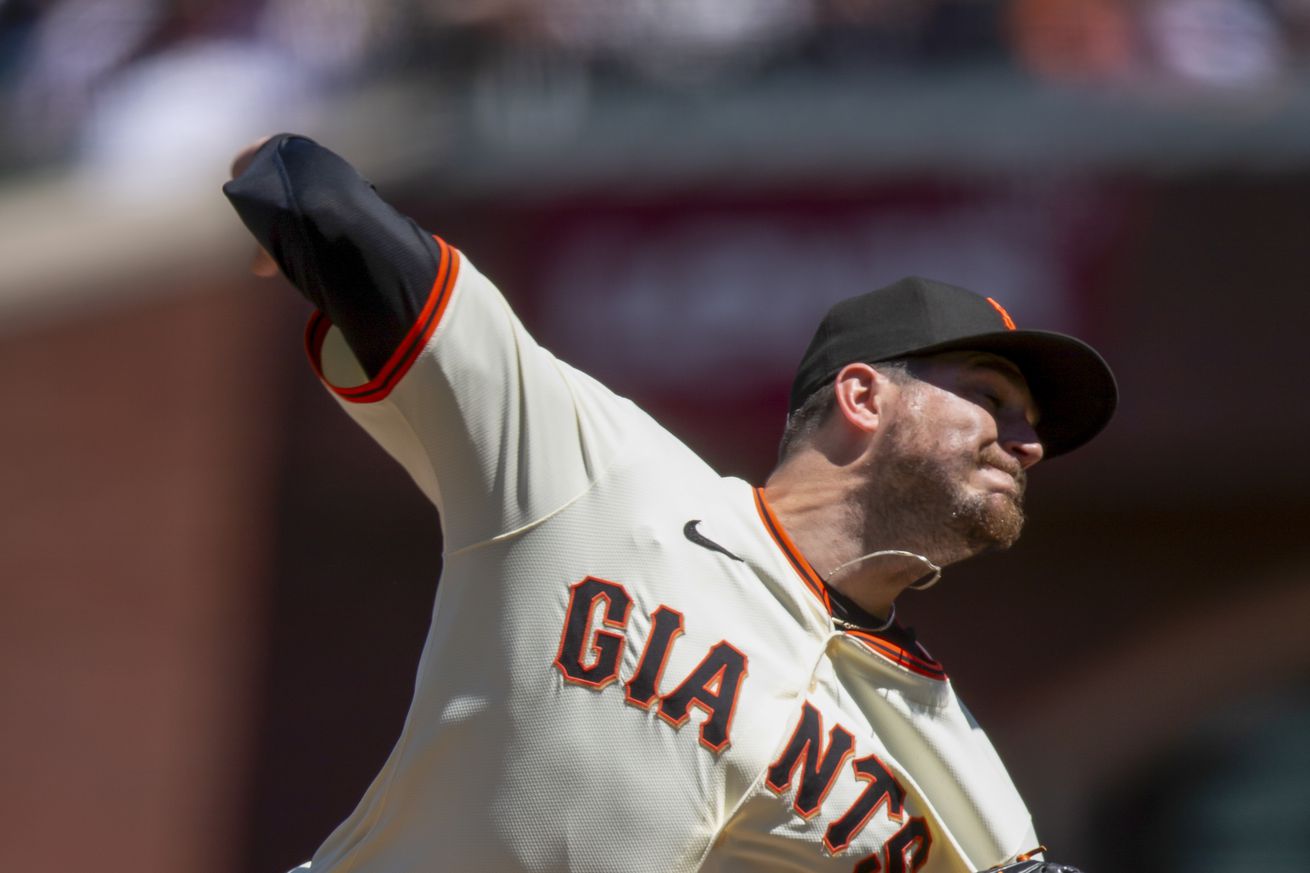
The world is constantly changing and we are powerless to reverse or guide any of it.
We’ve known for most of the season that the San Francisco Giants are neither good nor bad. What we do know is that Luke Jackson is having a bad season. A really, truly bad season. So bad that he can’t even be pitched in low leverage situations. He walks too many hitters, he doesn’t strike out enough. He has been far from the John Brebbia 2.0 the team wanted when they signed him to his deal.
But that’s not the issue. Major league relievers are just above backup catchers as the worst players on any roster. They’re fungible, forgettable, sometimes regrettable. But they do contribute to something that, at least up until the introduction of the third Wild Card, used to be foundational: a team’s run differential.
I’ll let MLB explain it to you:
Examining a team’s run differential can help to identify teams that are overachieving and teams that are underachieving. While there have certainly been clubs that have finished a season with a winning record and a negative run differential — and vice versa — those teams are statistical outliers. Looking at a team’s run differential early in the season can prove instructive when trying to determine whether a club is capable of either sustaining a “hot” start or capable of rebounding from an early slump.
[…]
It is also closely tied to pythagorean winning percentage — another metric that aims to provide a truer glimpse of a team’s talent than raw winning percentage.
In the history of Major League Baseball, 11 teams have gone to the postseason with negative run differentials — though, as Andrew Simon for MLB.com notes, “(That number actually overstates how common this is, because four of the 11 occurred during shortened seasons.)” But it’s also happened as recently as last season, when the 84-78 Marlins (-57) and 84-78 Diamondbacks (-15) both got in and the latter went to the World Series.
The COVID year and the expanded playoffs for that gave three teams (Marlins @ -41, Brewers @ -17, and Blue Jays @ -10) and their fans delusions of grandeur. The prior examples aren’t relevant for our purposes, though they do represent the notion that “this is a statistical outlier in the history of Major League Baseball,” and one of them is the 1997 Giants (-9 with a 90-72 record).
It has always been a quick and easy shorthand for getting closer to understanding whether or not a team was having a good season. What the new playoff format insists, though, is that good is irrelevant: since the playoffs are a crap shoot, be a disheveled, degenerate gambler. The Giants have a -30 run differential heading into the final series of June and we are supposed to accept that this team is good because they’re 3 games out of the final Wild Card and everything’s fine.
It’s true the Giants have a touch better than average lineup and in the second half, when they’re projected to get back two Cy Young winners along with Kyle Harrison and Alex Cobb, they might very well become a better pitching staff. You can see the recipe for improving that run differential down to at least 0, but don’t count on it. It’s not important.
We are in an era where it’s unclear what actually matters. Teams kind of seem to have an idea, but it’s always changing. That’s the value of the information age — the status quo is already in the past. That gives upstarts an opportunity that might not have had in a more rigid era or system of behavior, but let’s be real: it’s a lowering of standards. It’s cheaper and easier to simply make average or just below average “acceptable.”
We saw with the Joc Pederson signing that the Giants value run production more than run prevention, which suggests there’s a statistical correlation. And while we fans have to talk ourselves into pretending that the team’s win-loss record doesn’t matter until August 15th or later, it seems clear that there’s something going on with front offices where they’ve determined that 83-85 wins can manifest in many permutations, some of which don’t include positive run differential.
That’s easy to intuite — the Pirates won the 1960 World Series in 7 games like this:
Game 1: PIT 6, NYY 4 (+2)
Game 2: NYY 16, PIT 3 (-13)
Game 3: NYY 10, PIT 0 (-10)
Game 4: PIT 3, NYY 2 (+1)
Game 5: PIT 4, NYY 2 (+3)
Game 6: NYY 12, PIT 0 (-12)
Game 7: PIT 10, NYY 9 (+1)
That’s a -28 run differential.
Now, I’m not saying the 2024 Giants are the 1960 Pittsburgh Pirates (which had a +141 run differential in the regular season), but all world championships — though not created equal — are still miraculous, and in that sense these Giants are like those Pirates: just another team hoping for a miracle.
It’s very unlikely the Giants will get to a positive run differential by season’s end and it doesn’t ultimately matter. The playoffs are just about getting hot at the right time. They’re also the only way a team can salvage a season, like a public official winning an election and suddenly becoming immune from crime. So, if the 2024 Giants don’t make the postseason, then we can say this was a bad team. The numbers will prove it.